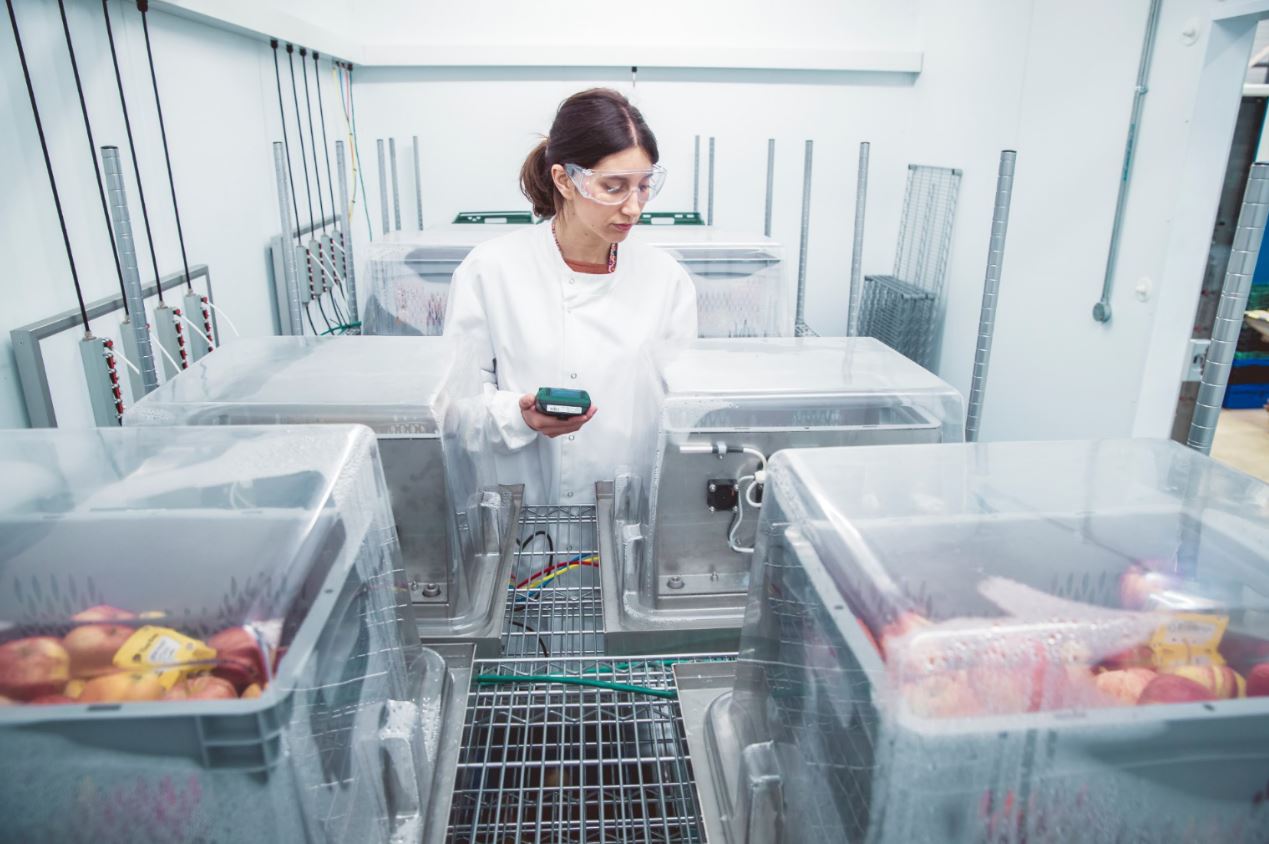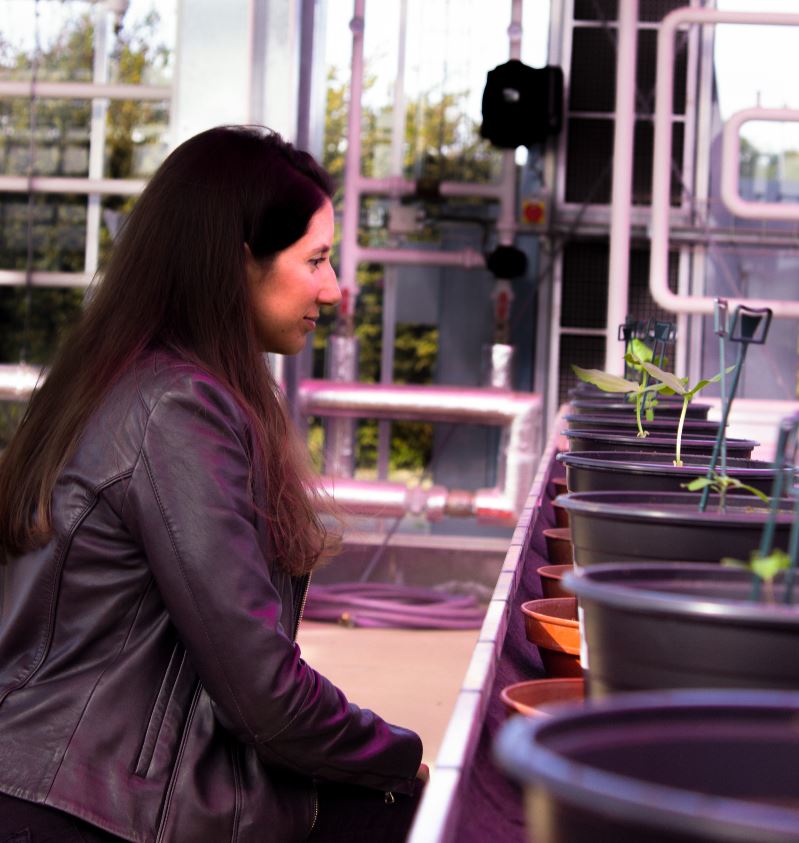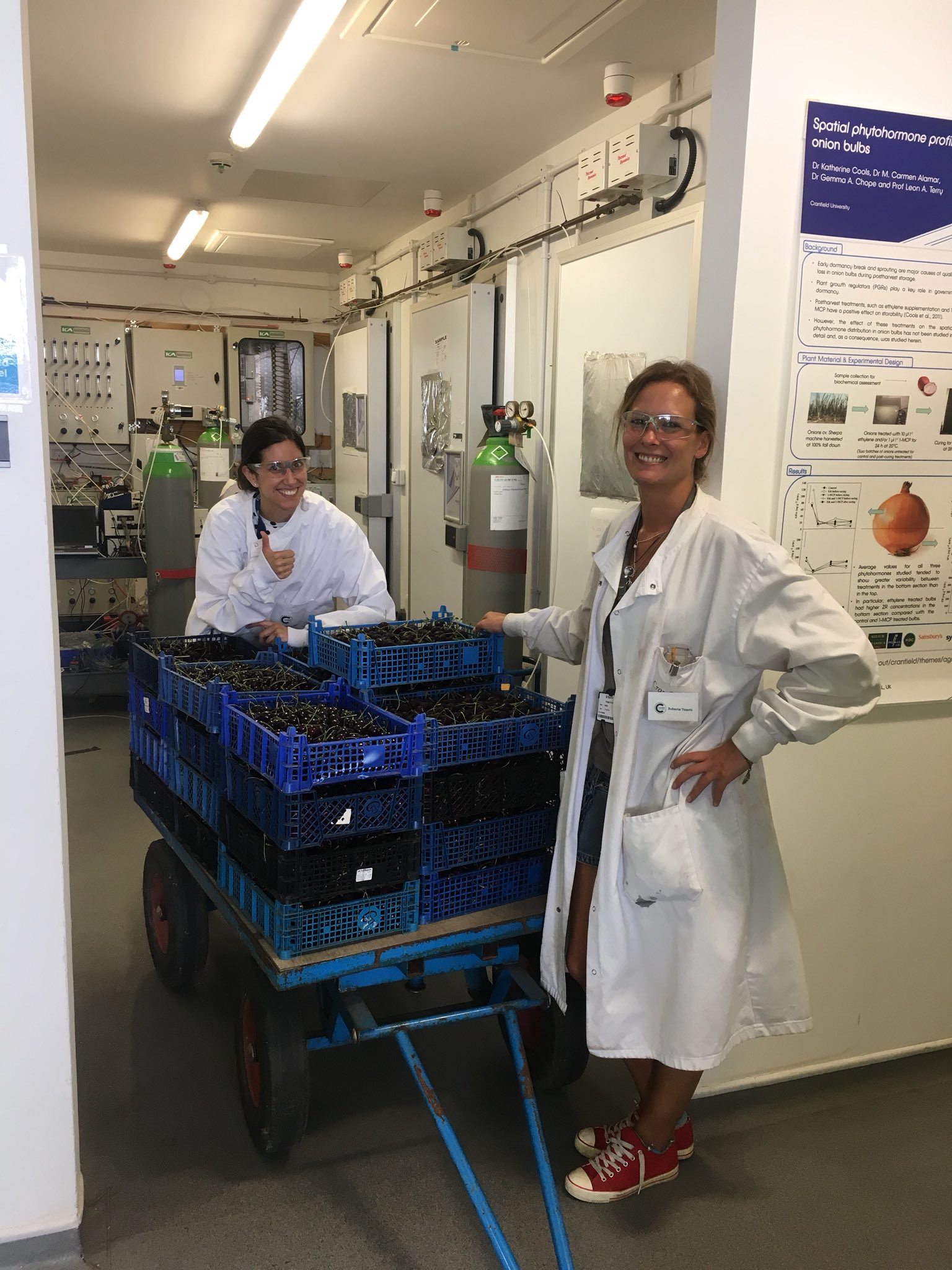A sit down with Dr Natalia Falagán Sama
14/04/2021

Can you tell us a bit about your background?
I studied Agricultural Engineering at Universidad Politécnica of Valencia (Spain) followed by an MSc and PhD in Food Engineering in Universidad Politécnica de Cartagena (Spain). Here I specialised in postharvest biology and technology of fresh produce. In 2016 I joined the Plant Science Laboratory at Cranfield University and I am now a Lecturer in Food Science and Technology in the School of Water, Energy and Environment.
Can you tell us more about your area of research?
My research focuses on reducing food loss and improving food security. This is a global challenge that involves industry, governments and society, for this reason I think it is important to have a multidisciplinary approach.
My work is based on two pillars. The first pillar is the fundamental science behind these food losses. I study the biological mechanisms behind ripening and senescence of fruit and vegetables. Fresh produce suffers multiple changes in environment from farm to fork and understanding the reasons why they respond as they do is key to developing strategies to maintain their nutritional quality and safety.
The second pillar is working towards a more sustainable and resilient supply chain, which requires a global perspective. For example, I am part of the Rurban Revolution team. Urban food production has been providing us with fresh produce and protecting green spaces in our cities for centuries. However, consumers are disconnected from their food supply, sometimes not knowing where fresh produce comes from and the amount of effort and resources involved in its production. Rurbanisation is bringing the rural environment to cities to expose consumers to green areas, involve the consumer in food production, reduce the carbon footprint of food transportation from conventional farming and reduce the burden of intensive systems on our rural soils.

Why did you choose to Cranfield?
I chose Cranfield because it has a balance between fundamental and applied research and strong links with industry. This is very interesting to me because we contribute to scientific knowledge and also develop applications that people can benefit from. This has a direct impact on society, improving food quality and accessibility.
What’s a typical day at Cranfield?
To be honest, no two days are the same! My job involves research, teaching, supervision, industry engagement, etc. So one day I can be in the laboratory analysing some bioactive compounds and the next I can be teaching on our MSc courses (Food Systems and Management and Future Food Sustainability) or meeting with industrial partners that are having issues with the quality of their fresh produce.

Can you highlight a unique experience at Cranfield?
I have been working with Defra, UNEP U4E and a consortium of UK universities (University of Birmingham, London South Bank University and Heriot-Watt University) to build the new Africa Centre of Excellence for Sustainable Cooling and Cold Chain. This centre will improve the cool and cold supply chain in Africa and boost environment and the economy through reduced food loss and waste. I think this project will have a real impact in livelihoods and global food systems and I am very excited to be part of it.
Categories & Tags:
Leave a comment on this post:
You might also like…
Keren Tuv: My Cranfield experience studying Renewable Energy
Hello, my name is Keren, I am from London, UK, and I am studying Renewable Energy MSc. My journey to discovering Cranfield University began when I first decided to return to academia to pursue ...
3D Metal Manufacturing in space: A look into the future
David Rico Sierra, Research Fellow in Additive Manufacturing, was recently involved in an exciting project to manufacture parts using 3D printers in space. Here he reflects on his time working with Airbus in Toulouse… ...
A Legacy of Courage: From India to Britain, Three Generations Find Their Home
My story begins with my grandfather, who plucked up the courage to travel aboard at the age of 22 and start a new life in the UK. I don’t think he would have thought that ...
Cranfield to JLR: mastering mechatronics for a dream career
My name is Jerin Tom, and in 2023 I graduated from Cranfield with an MSc in Automotive Mechatronics. Originally from India, I've always been fascinated by the world of automobiles. Why Cranfield and the ...
Bringing the vision of advanced air mobility closer to reality
Experts at Cranfield University led by Professor Antonios Tsourdos, Head of the Autonomous and Cyber-Physical Systems Centre, are part of the Air Mobility Ecosystem Consortium (AMEC), which aims to demonstrate the commercial and operational ...
Using grey literature in your research: A short guide
As you research and write your thesis, you might come across, or be looking for, ‘grey literature’. This is quite simply material that is either unpublished, or published but not in a commercial form. Types ...






